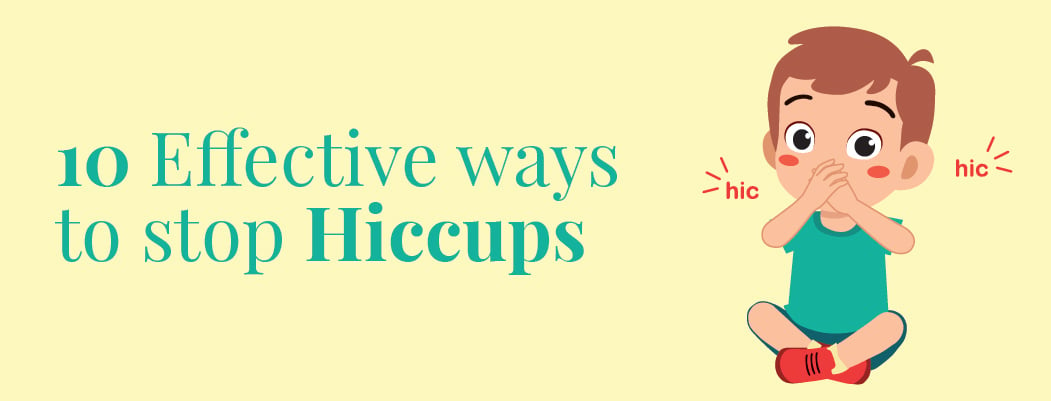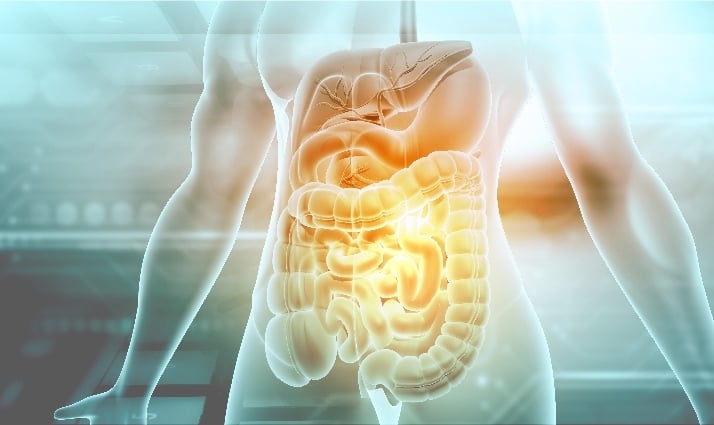How to stop hiccups
February 16, 2023

Hiccups are involuntary spasms of the diaphragm muscle that can cause a sudden, sharp sound and can sometimes be bothersome. Although hiccups are usually harmless, they can indicate an underlying health condition. In this blog post, we will explore the causes of hiccups and provide some tips on how to stop them.
Table of Contents
Causes of Hiccups
Hiccups can be caused by a variety of factors, including:
- Eating too quickly: Eating too fast can cause air to be swallowed, triggering hiccups.
- Drinking carbonated beverages: Carbonated drinks can cause the stomach to become distended, irritating the diaphragm muscle and causing hiccups.
- Alcohol consumption: Alcohol can cause the stomach to become irritated and can also affect the nerves that control the diaphragm muscle.
- Eating spicy foods: Spicy foods can irritate the lining of the stomach, which can trigger hiccups.
- Nervousness or emotional stress: Anxiety and stress can cause hiccups by disrupting the normal breathing pattern.
- Medical conditions: Certain medical conditions, such as gastroesophageal reflux disease (GERD),pneumonia, or a brain injury, can cause hiccups.
How to Stop Hiccups
There are several ways to stop hiccups, including:
1. Hold Your Breath
One of the most common ways to stop hiccups is to hold your breath. This works by increasing the carbon dioxide level in your blood, which can relax the diaphragm muscle and stop the hiccups. To do this, take a deep breath and hold it for as long as possible. Then, Exhale slowly and repeat if necessary.
2. Breathe Into a Paper Bag
Another way to stop hiccups is to breathe into a paper bag. This works by increasing the level of carbon dioxide in your bloodstream, which can help relax the diaphragm muscle. To do this, take a small paper bag and breathe in and out of it for a few minutes.
3. Drink Water
Drinking a glass of water can also help stop hiccups. This works by stimulating the vagus nerve, which runs from the brain to the stomach and can help regulate breathing. To do this, take small sips of water until the hiccups stop.
4. Eat a Spoonful of Sugar
Eating a spoonful of sugar can also help stop hiccups. This works by stimulating the nerves in the throat, which can help regulate breathing. To do this, take a spoonful of sugar and let it dissolve slowly in your mouth.
5. Pull Your Knees Up to Your Chest
Pulling your knees up to your chest can also help stop hiccups. This works by compressing the chest and diaphragm muscles, which can help regulate breathing. To do this, sit on a chair and bring your knees up to your chest, holding them there for a few minutes.
6. Massage Your Diaphragm
Massaging yourdiaphragm can also help stop hiccups. This works by relaxing the muscle and can help regulate breathing. To do this, place your hand on your stomach, just below your rib cage, and gently massage the area.
7. Use a Compressed Air Inhaler
Using a compressed air inhaler can also help stop hiccups. This works by stimulating the vagus nerve, which can help regulate breathing. Hold the inhaler to your mouth and inhale and exhale slowly for a few minutes to do this.
8. Gargle with Water
Gargling with water can also help stop hiccups. This works by stimulating the nerves in the throat and can help regulate breathing. To do this, take a glass of ice water and gargle it in your mouth for a few seconds.
9. Try Acupressure
Acupressure is a traditional Chinese technique that involves applying pressure to specific points on the body to relieve symptoms. For example, Acupressure can be used to stop hiccups by stimulating the diaphragm muscle. To do this, place your thumb on the centre of your palm and press firmly for 30 seconds, then repeat on the other hand.
10. Take Deep Breaths
Taking deep breaths can also help stop hiccups. This works by calming the nerves that control the diaphragm muscle and can help regulate breathing. To do this, take slow, deep breaths through your nose and out through your mouth.
11. Use a Tongue Depressor
Using a tongue depressor can also help stop hiccups. This works by stimulating the gag reflex, which can help regulate breathing. To do this, place a tongue depressor on the back of your tongue and hold it there for a few seconds.
When to See gastroenterologists/ Pulmonologists/ Primary care Doctor
Hiccups are usually harmless and will go away on their own. However, if hiccups persist for more than 48 hours or are accompanied by other symptoms, such as difficulty breathing or chest pain, you should see a doctor. Your doctor may perform a physical exam and order tests to determine the underlying cause of your hiccups.
How to Prevent hiccups
To avoid getting hiccups from lifestyle-related factors, you can adjust your habits. If you notice that specific actions are causing your hiccups, you can try doing the following:
- Eat smaller portions of food at a time.
- Take your time when eating, and eat slowly.
- Refrain from consuming spicy foods.
- Cut down on your alcohol intake.
- Avoid drinking carbonated beverages.
- Practice relaxation techniques such as meditation or deep breathing to lower stress levels.
People also ask
1.How do you get rid of hiccups in 10 seconds?
The following are some remedies that can be used to alleviate hiccups:
- Breathe into a paper bag (without covering your head).
- Lean forward while pulling your knees up to your chest.
- Take small sips of ice-cold water.
- Swallow some granulated sugar.
- Taste vinegar or bite into a lemon.
- Hold your breath for a brief time.
2.What is the leading cause of hiccups?
Hiccups can be caused by various factors, such as consuming a large meal, alcohol or carbonated drinks, or sudden excitement. While hiccups may indicate an underlying medical issue for some people, most individuals typically experience them for only a short time, usually lasting a few minutes. However, in rare instances, hiccups can last for months.
3.What are 3 remedies for hiccups?
- Gently press your diaphragm
- Bite size of a lemon
- Sit with your knees against the chest and lean forward.








